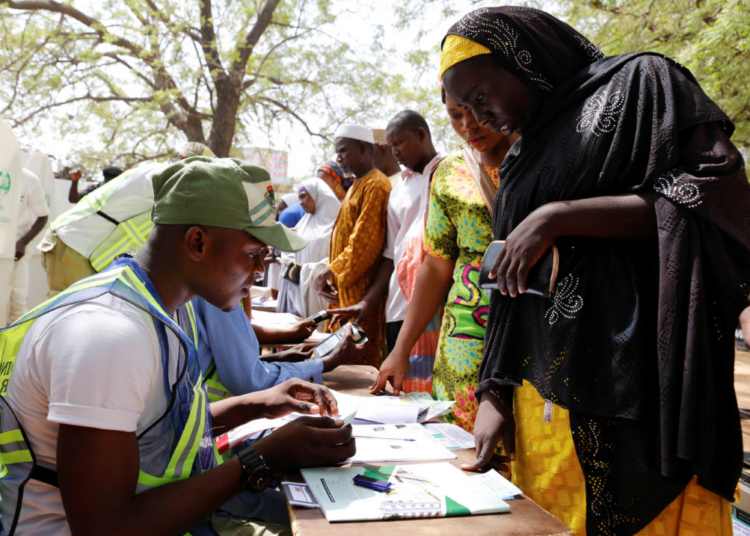Perhaps, the biggest demand of the advocates of restructuring in Nigeria is the effective devolution of powers from the federal government to the lower tiers, particularly state governments, in order to make them a lot more equipped for the delivery of the desired services to the people. Such advocates consistently push the argument that the country which is termed as a ‘Federation’ is still not balanced enough because the states as the federating units lack the vital constitutional instruments that will make it possible for them to operate as full-fledged sub-nationals.
In fact, the clamour for the restructuring predicates on the belief that the country is much more unitary state than a federation as a result of the prolonged military rule to which it was subjected. This is what limits the quantity of resources that accrue to the state governments in the form of federal allocations and the amount of powers they exercise.
However, even with all the identified deficiencies, the governments of the states are strong authorities on which Nigerians heavily depend for the attainment of their individual and collective objectives. The entitlement of the state governments to huge financial allocations from the federal government and the considerable constitutional powers at their disposal have made them sufficiently relevant to the lives of the ordinary citizens.
People are proud of their respective states and look up to the governments of those states for the delivery of services that will improve their fortunes. This is the reason for both the pronounced worry over the negligence of duty by some state governors and the twin processes of politicking and electioneering through which they are produced.
The on-going hot contest for the governorship in the 28 out of the 36 states in the country where the elections will be conducted next Saturday 18th March 2023 and the enormous concern it has generated are both a clear explanation and evidence of the immeasurable significance that has been duly attached to this particular tier of government. It looks like the various political parties and their candidates in the race are more than ordinarily committed to the process, mainly because of their determination to win the election.
On their own part, the people in those states are keenly observing the campaign strategies of the parties and the candidates with a view to making informed choices. In various ways, the individual contestants are having engagements with the voters, in the process of which their capabilities and readiness are assessed with a view to establishing the basis of either acceptance or rejection of their respective demands.
Although the results of the last presidential and National Assembly elections, which took place about two weeks ago, have been reasonably considered as a pointer to what will play out during the forthcoming Gubernatorial and State Assembly elections, certain realities in a lot of the states are strongly necessitating the conclusion that the voting pattern is likely to be different. Some considerations and judgements are expected to become game-changers in some of the states.
In fact, the individual voters or some groups of them must have, by now, picked out their preferences from amongst the gubernatorial candidates. All those preferences may not be the same as the ones that manifested during the last elections because the reasons for the choices might have changed.
The election of the state governors this year is a lot more crucial exercise to the ordinary Nigerians than it had ever been because it has come at a time when lofty alternatives to the existing ugly realities in the country have become most desirable. The failure of some of the state governors to meet the basic aspirations of the people makes the search for much better persons, on whom such a huge responsibility can be bestowed, a compelling necessity
The persistent insecurity, rising poverty, heightening social discontent and the obvious decay of infrastructure are always linked to the incapacity and/or insensitivity of some of the state governors to the problems affecting the people. There has, in fact, been a ceaseless expression of dissatisfaction and even fury over the refusal of many governors to tackle some ugly phenomena that have already become real threats to people’s welfare and survival.
Having experienced such negative attitudes of the governors, the voters have appeared to be determined enough to make the kind of change that can translate into better conditions. As targets of all the campaigns, the eligible voters in the states have been showing more than the usual attention to the methods of the candidates.
Yet, there are some clear facts about the nature of the campaigns and the attitudes of the voters that are terribly inimical to the apparent resolve to elect credible persons as governors. The susceptibility of a lot of the voters to religious manipulation is as dangerous as the politicians’ penchant for the use of money to buy the votes; a combination of a weakness and a tendency that are inherent in the current political process in the country.
While the desire for the emergence of credible politicians as state governors and the efforts towards the full attainment of the objective are quite genuine, the determination of some of the contestants to subvert such a popular will is correspondingly strong. What is, therefore, happening is a battle of attrition between enlightened Nigerians who have concern for the country and those whose main objective is the acquisition of power and resources, just for the sake of it.
At the moment, Nigerian voters are confronted with a dilemma over the elections scheduled for next Saturday. It is only a combination of a serious rebellion against the negative tendencies within them and a stiff resistance against external temptations that can simultaneously prevent them from falling into the traps of the manipulators and enable them overcome the dilemma.
Stronger and more functional state governments will definitely be a lot more useful to the ordinary citizens than the federal government, which serves as more or less a protector of the country’s borders and distributor of monies to the lower tiers. This is what makes the recruitment of high quality materials as drivers of these critical geo-political units a fundamental duty that must be concertedly discharged.
The creation of the right atmosphere for the emergence of patriotic and resourceful individuals as state governors is the beginning of any meaningful restructuring of the polity that is being persistently advocated. Results of thorough assessments of candidates in terms of their respective records and preparedness, not just party affiliation or some other kinds of inclination, are the only foundation upon which such an atmosphere can exist.





